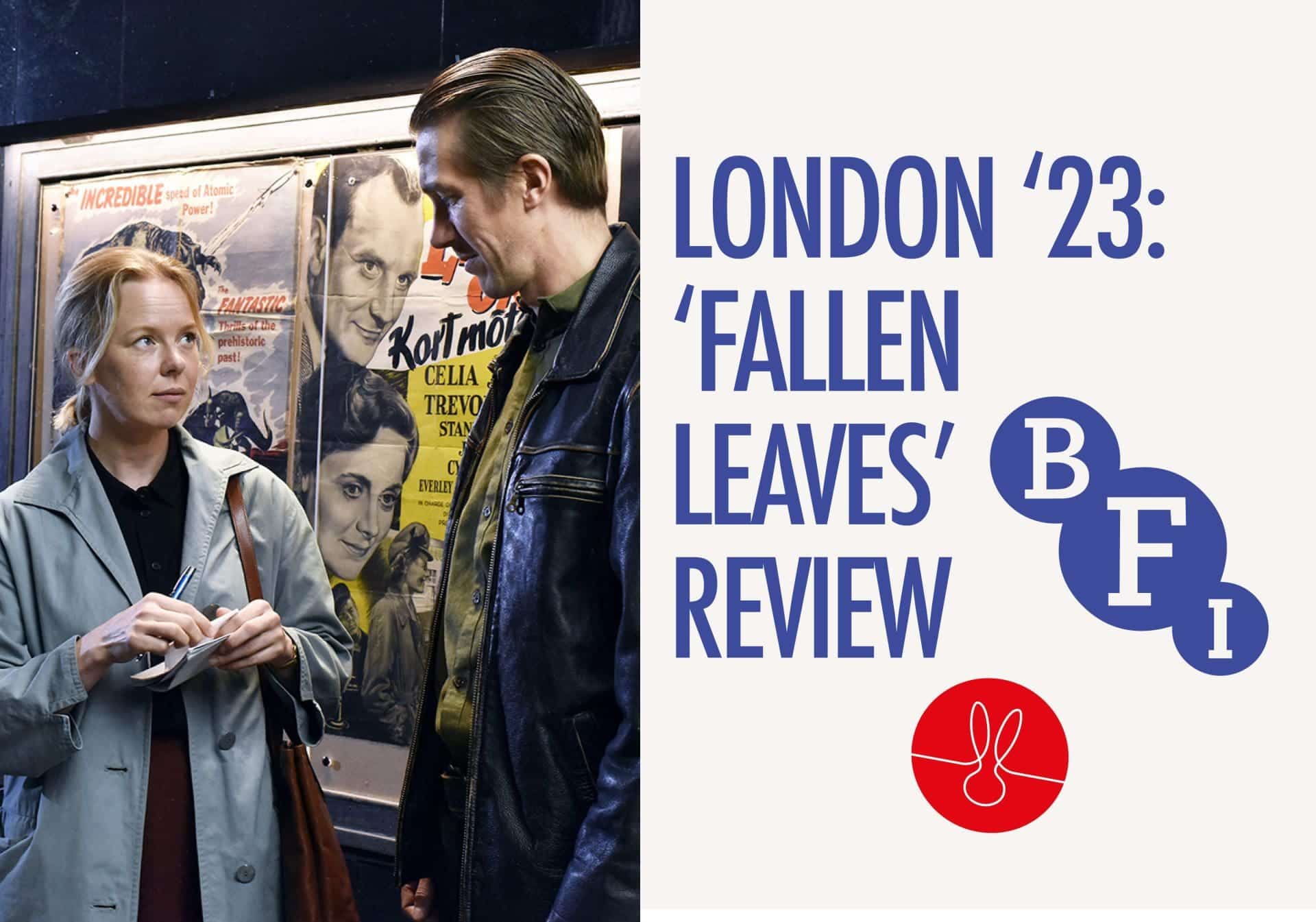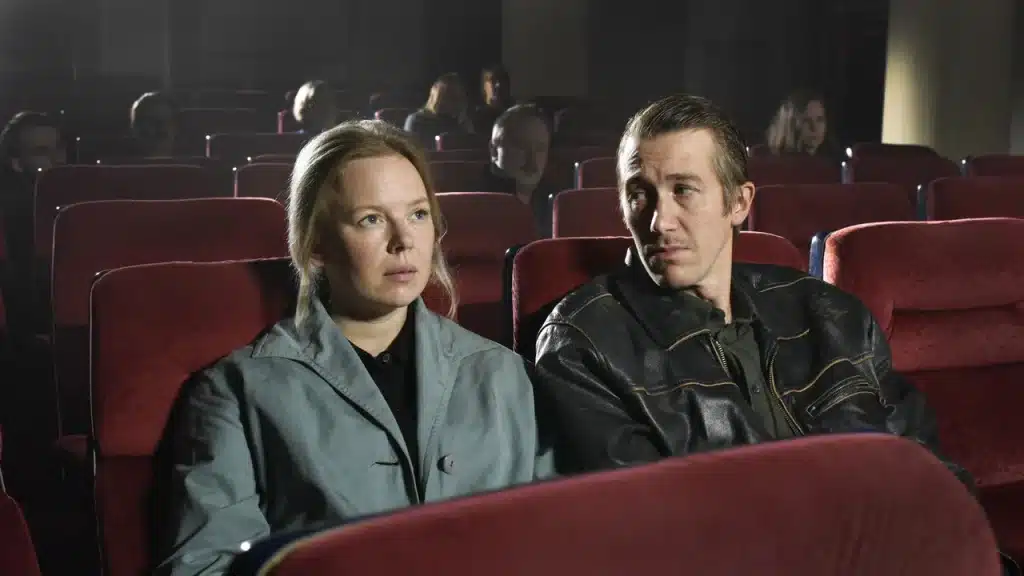
Three decades since his first instalment of the Proletariat series, Fallen Leaves tells the story of two characters falling in love in the worst period of their life. Hilarious, quietly political, and beautifully composed, its greatest weakness is it doesn’t deviate far from renowned Finnish director Aki Kaurismäk’s deadpan sensibilities.
Ansa (Alma Pöysti)—whose name means ‘Snare’ in Finish—is a supermarket attendant on a zero-hour contract. Filled with a principled stubbornness, she suspects she’s little different to the ‘waste’ she’s forced to fill up her company’s bins with. On the flipside, Holappa (Jussi Vatanen) is an alcoholic construction worker played with the arctic cool of a longer-faced Ryan Gosling. When they meet at a karaoke bar, it’s not love at first sight but rather the shy attraction of two people sensing each other’s loneliness.
Blending Christian existentialism with noir tropes and social realism, if you’ve seen one Aki film, you’ve seen this one before. Fallen Leaves excels with Aki’s trademark attention to detail and clipped humour that turns Finnish roots into neat caricatures. “Men,” warns Ansa’s friend, “are all cast from the same mould. Sadly that mould is broken.” As Holappa and Aki court each other through cafes, bars and apartment blocks, affection is simply an offer of cinnamon rolls, difficulty with aperitifs, or simply “not taking orders.” Yet the romance is never not beautiful. Responsible for almost 1/5th of Finland’s cinema in the 80’s, all Aki needs is a look, a rock song or a cherry red blazer to spit up the colour he’s sucked away.
For a story about finding love in an unlikely moment, going back in time has a real appeal for Aki’s universe. Reuniting with his long-term cinematographer Timo Salminen, Fallen Leaves colour grading is evocative of IKEA-meets-Kodak, allowing Aki’s characters to inhabit his teal Soviet style sets with real poise (Aki prefers no rehearsals and allows his actors minimum time with their lines). In one of the film’s strongest beats, when Hollapa loses Aki’s written phone number (another wonderful analogue touch) outside a cinema draped with vintage movie posters, he decides to wait by their date spot like a freezing film noir detective. Aged posters act like love-letters to an older decade, and with a movie composed of 80’s hand-me-down wardrobes, radios, brick phones and entirely shot in film, you’d be forgiven for thinking Fallen Leaves stepped out of the early 2000’s at the latest. You’d be wrong.

The illusion is shattered when the film’s liminal space is broken half an hour in as news from Ukraine bleeds through a nearby radio (Aki really does have a definitive hatred of any device made after the 2000s). Characters are quick to turn off the radio and go back to their dated space, but Aki repeats this grounding effect three times, often at the stillest portions in his film. For a country carved out by Russia two generations ago, there’s a clipped discomfort from Ukraine’s ‘bloody war’ seeping into Aki’s retro Finnic film universe. As Ansa and Holappa’s romance struggles on, you realize, it’s not only these two characters facing a difficult moment in time—but the entire country.
For those finding love in a painful part of Europe’s history, there’s perhaps a curt naïveté to the director’s romance as he expertly indulges in his retro style of filmmaking. Indulging in his old aesthetic and themes, yet consciously circling around new ones, Fallen Leaves remains a solid romantic-comedy with a wry attack on capitalism; but it also feels so much more flat compared to Aki’s best outings, especially as his characters ignore the immediate war by their doorstep. Filled with nostalgia for old cinema, compared to the rest of the hyper-political Proletariat series, the decision for more of the same is an odd mood for the aging director to draw on, one made doubly-odd by his retro setting, but perhaps dissonance is the movie’s modern point: it’s easier to fall in love when we turn off the news.





